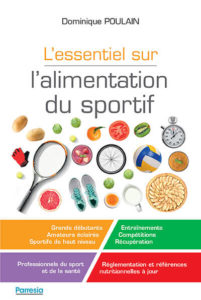Faut-il prendre ou éviter le petit déjeuner dans un objectif de perte de poids ?
The effectiveness of breakfast recommendations on weight loss : a randomized controlled trial.
Author information
Dhurandhar EJ, Dawson J, Alcorn A, Larsen LH, Thomas EA, Cardel M, Bourland AC, Astrup A, St-Onge MP, Hill JO, Apovian CM, Shikany JM, Allison DB.
From the Department of Health Behavior, School of Public Health (EJD); the Office of Energetics, Nutrition Obesity Research Center, Department of Nutrition Sciences, School of Public Health and School of Health Professions (JD, A Alcorn, and DBA); and the Division of Preventative Medicine, School of Medicine (JMS), University of Alabama at Birmingham, Birmingham, AL; The OPUS Centre, Department of Nutrition, Exercise and Sports, University of Copenhagen, Copenhagen, Denmark (LHL and A Astrup); the Department of Endocrinology, Metabolism, and Diabetes (EAT) and the Department of Pediatrics, Anshutz Medical Campus (MC and JOH), University of Colorado Denver, Denver, CO; the Nutrition and Weight Management Center, Boston Medical Center, Boston, MA (ACB and CMA); and the New York Obesity Research Center, Columbia University, New York, NY (M-PS-O).
Abstract
BACKGROUND : Breakfast is associated with lower body weight in observational studies. Public health authorities commonly recommend breakfast consumption to reduce obesity, but the effectiveness of adopting these recommendations for reducing body weight is unknown.
OBJECTIVE : We tested the relative effectiveness of a recommendation to eat or skip breakfast on weight loss in adults trying to lose weight in a free-living setting.
DESIGN : We conducted a multisite, 16-wk, 3-parallel-arm randomized controlled trial in otherwise healthy overweight and obese adults [body mass index (in kg/m2) between 25 and 40] aged 20-65 y. Our primary outcome was weight change. We compared weight change in a control group with weight loss in experimental groups told to eat breakfast or to skip breakfast [no breakfast (NB)]. Randomization was stratified by prerandomization breakfast eating habits. A total of 309 participants were randomly assigned.
RESULTS : A total of 283 of the 309 participants who were randomly assigned completed the intervention. Treatment assignment did not have a significant effect on weight loss, and there was no interaction between initial breakfast eating status and treatment. Among skippers, mean (±SD) baseline weight-, age-, sex-, site-, and race-adjusted weight changes were -0.71 ± 1.16, -0.76 ± 1.26, and -0.61 ± 1.18 kg for the control, breakfast, and NB groups, respectively. Among breakfast consumers, mean (±SD) baseline weight-, age-, sex-, site-, and race-adjusted weight changes were -0.53 ± 1.16, -0.59 ± 1.06, and -0.71 ± 1.17 kg for the control, breakfast, and NB groups, respectively. Self-reported compliance with the recommendation was 93.6% for the breakfast group and 92.4% for the NB group.
CONCLUSIONS : A recommendation to eat or skip breakfast for weight loss was effective at changing self-reported breakfast eating habits, but contrary to widely espoused views this had no discernable effect on weight loss in free-living adults who were attempting to lose weight. This trial was registered at clinicaltrails.gov as NCT01781780.
© 2014 American Society for Nutrition.
Am J Clin Nutr. 2014 Jun 4;100(2):507-513.
Santé et Performance

Notre Société savante a pour mission de promouvoir la Nutrition du sport, dans un objectif de protection de la santé, de recherche de performance, et de prévention des conduites addictives.
Nous proposons des colloques et des journées de formation, fondés sur une actualisation des connaissances scientifiques...
> Santé et Performance

